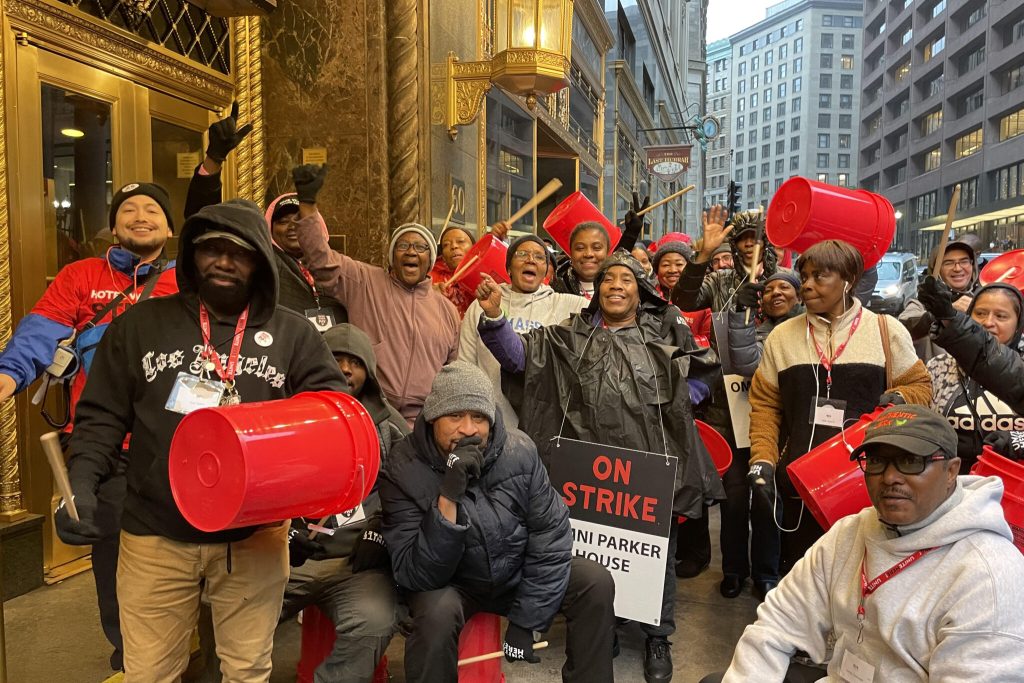The labor movement in the U.S. has seen an increase in strikes this year, with about 5,060 hotel workers currently on strike across the country. Major hotel chains such as Hilton, Hyatt, Marriott, and Omni are being affected by the walkouts, putting pressure on owners and operators. The strikes, which are calling for better pay, workload reductions, and staffing increases, have been disrupting operations at various hotels, impacting both travelers and employees. Unite Here, the hospitality workers’ union, has reported that around 40,000 hotel workers in 22 North American markets have authorized potential walkouts before the end of the year.
The strategy of labor organizers this year has involved organizing localized, short-duration strikes to raise pressure during negotiations. For example, workers at the Omni Parker House and Omni Boston Seaport hotels have been negotiating for new contracts since April, with strikes being used as a tactic to push for better terms. Strikes by workers at the DoubleTree by Hilton Hotel Seattle Airport and Hilton Seattle Airport & Conference Center are planned to be short-term, lasting only until October 19. Service disruptions, such as unavailable daily housekeeping and closed amenities, have been reported by guests at locations affected by the strikes.
The impact of the strikes on the accommodations sector can also be seen in the performance of hotel and short-term rental stocks within the ST200 index. The index includes publicly traded companies across global markets, including international and regional hotel brands, hotel REITs, hotel management companies, alternative accommodations, and timeshares. The Skift Travel 200 (ST200) provides an overview of the financial performance of nearly 200 travel companies, totaling over a trillion dollars in value, into a single number. The current strikes in the hospitality sector are likely to have an effect on the financial performance of these companies in the stock market, as labor disruptions can impact operations and profitability.
The strikes in the hotel sector have been escalating in recent days, with more workers joining walkouts in Boston and Seattle. Over 600 workers in Boston, including staff at the city’s largest hotel, Omni Boston Seaport, and about 300 workers in Seattle have walked off their jobs in support of the labor disputes. Strikes at hotels in Honolulu and San Francisco have been ongoing since September, showing a growing trend of worker unrest in the industry. The use of strikes as a tactic by labor unions is aimed at achieving better working conditions and compensation for their members, with the potential for more walkouts to occur in other North American markets in the near future.
Overall, the current labor strikes in the hotel sector are indicative of broader issues within the industry related to worker compensation, workload, and staffing levels. The pressure being put on major hotel chains by the strikes highlights the importance of addressing these concerns to ensure a fair and sustainable working environment for hospitality employees. The financial impact of the strikes on the accommodations sector, as seen in the performance of stocks within the ST200 index, reflects the potential consequences of labor disruptions on the overall profitability and stability of travel companies. As the labor movement continues to organize and mobilize workers in the hospitality sector, the industry is likely to see further labor disputes and negotiations in the coming months.














